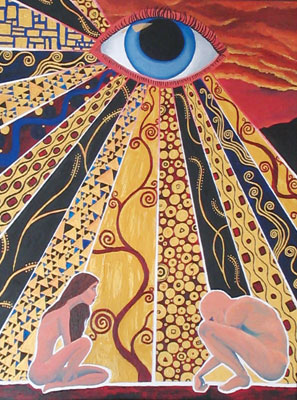All Nonfiction
- Bullying
- Books
- Academic
- Author Interviews
- Celebrity interviews
- College Articles
- College Essays
- Educator of the Year
- Heroes
- Interviews
- Memoir
- Personal Experience
- Sports
- Travel & Culture
All Opinions
- Bullying
- Current Events / Politics
- Discrimination
- Drugs / Alcohol / Smoking
- Entertainment / Celebrities
- Environment
- Love / Relationships
- Movies / Music / TV
- Pop Culture / Trends
- School / College
- Social Issues / Civics
- Spirituality / Religion
- Sports / Hobbies
All Hot Topics
- Bullying
- Community Service
- Environment
- Health
- Letters to the Editor
- Pride & Prejudice
- What Matters
- Back
Summer Guide
- Program Links
- Program Reviews
- Back
College Guide
- College Links
- College Reviews
- College Essays
- College Articles
- Back
Sophie's World by Jostein Gaarder
Why the world needs philosophy?
This long, substantial novel, Sophie’s World a best seller in many countries, weaves an interlaced net of the history of philosophy. Prior to reading this book, I had always believed that that philosophy is a subject that only the greatest minds could ever deliberate on. However, Sophie’s World has taught me philosophy is not a mountain too high to be reached. On the contrary, it is closely related to our lives.
Sophie Amundsen receives her first letter when she is about to turn 15 years old, from Alberto Knox, a philosopher who takes the responsibility of teaching her philosophy. Soon, Sophie realizes that there is something strange about her world, which she noticed before. At the same time, a name “Hilde” crashes into her life. In the very end, Alberto tells her that she and he are just two imaginary characters in a book that belongs to Hilde written by Hilde’s father. The concept of her world, which was already been rickety and frail, crashes down utterly as a result.
However, Sophie and Alberto do not give up on the power of changing the plots in the book; they try to escape from the book. Finally, because of their efforts, the facts that Sophie believed in the past suddenly twists. At the very end, they seize the chance of the author’s carelessness and escape from the book.
Sophie’s Story truly shocked me due to the distinct perspective from which it is told. I cannot help but think of the film The Truman Show. Within this movie, the titular character, Truman, is also trapped in a huge artificial setting ever since his birth. But what Truman does after he detects the odd truth, is he breaks out this “world” created for him. So, too, does Sophie. What the author of the book wants to convey here is not to break out of one’s established world blindly, but rather to observe that which one has gotten used to. As the author states, “The curiosity about the unknown is actually what triggers a mind to attain knowledge.” As babies, humans are curious about everything around them. However, as one gets older and older, the same curiosity seems to disappear. I can still remember how the author describes humans as: every one of us is just a microscopic insect living in the space deep down within a white rabbit’s fur. When the rabbit is eventually pulled out by a magician, philosophers will try to climb to the top of the hairs and stare straight into magician’s eyes. Even then, the philosophers will not be able to realize the truth of the whole universe.
If Sophie’s world exists within Hilde’s book, and Hilde’s exists within our books, then what book is ours told in?
“How terribly sad it was that people are made in such a way that they get used to something as extraordinary as living.” Jostein Gaarder, The Solitaire Mystery

Similar Articles
JOIN THE DISCUSSION
This article has 0 comments.
